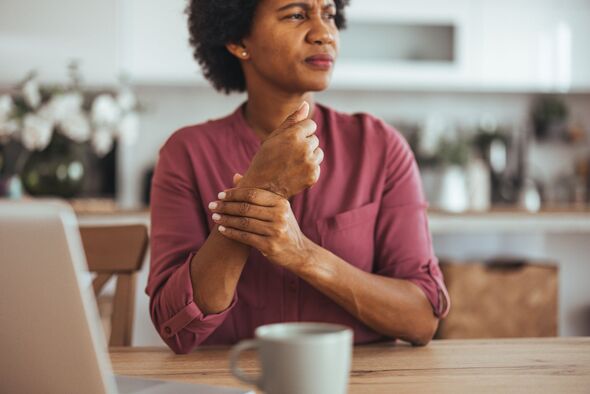According to the most recent government statistics, nearly 3.7 million people in the UK are currently claiming Personal Independence Payment (PIP), the primary disability benefit provided by the Department for Work and Pensions (DWP). This benefit offers up to a maximum of £798.63 per month at its highest rates to assist individuals with the additional costs associated with living with a disability.
Among these claimants, more than a million report a musculoskeletal condition as their main ailment, according to a new report by the Taxpayers’ Alliance. This category encompasses over 23 different disorders, but the majority of claimants suffer from just three conditions: osteoarthritis, inflammatory arthritis, and specific back pain disorders.
Osteoarthritis: The Leading Cause of PIP Claims
Osteoarthritis is the most prevalent condition among PIP claimants, with 265,634 people reporting it as their primary disability. This type of arthritis is typically caused by the wear and tear of cartilage around the ends of bones, resulting in bone-on-bone contact when the cartilage deteriorates. It usually affects a few joints in the body, typically those that are used the most often or have experienced the most injuries.
Primary generalised osteoarthritis is the most common form among PIP claimants, with 191,788 claims. Knee osteoarthritis follows with 41,000 claims, and hip osteoarthritis is third with just over 19,000 claims. The impact of osteoarthritis on mobility and daily living tasks is significant, as it causes pain, stiffness, and a limited range of motion.
Specific Back Pain Disorders
Another major group of conditions leading to PIP claims is specific back pain disorders, with over 191,000 claimants. The most common condition within this group is a lumbar disc lesion, which can lead to sciatica, lower back pain, numbness, and muscle weakness in the affected leg.
Other specific back pain conditions reported for PIP include:
- Lumbar spondylosis – 21,104 claims
- Spinal stenosis – 17,798 claims
- Scoliosis – 11,487 claims
- Spondylolisthesis – 6,407 claims
- Kyphosis – 1,097 claims
- Schuermann’s disease – 904 claims
Inflammatory Arthritis: A Complex Challenge
More than 163,000 people are claiming PIP for inflammatory arthritis, which includes conditions such as reactive arthritis, rheumatoid arthritis, and juvenile chronic arthritis, also known as Still’s disease. Unlike osteoarthritis, this type of arthritis is caused by inflammation in the joint, typically triggered by an overactive immune system.
The progression of inflammatory arthritis can be quicker than other types of arthritis and it can affect multiple joints across the body, sometimes even symmetrically. This leads to pain, stiffness, and fatigue that can make moving around and completing normal daily tasks challenging.
Understanding PIP: Financial Support and Its Impact
PIP is comprised of two components: mobility and daily living. Each has a standard and enhanced rate, depending on the severity of the disability’s impact on either mobility or the ability to carry out daily tasks. The lowest level of mobility, which includes the ability to plan journeys as well as move around, offers £29.20 per week, while the higher rate provides £77.05 per week.
The daily living component, assessed using 10 categories of activities like washing and budgeting, offers £73.90 on the lower rate and £110.40 on the higher rate. Due to the varying rates, a claimant could receive just £29.20 per week if they only qualify for the lower rate of mobility. However, receiving both enhanced rates can earn up to £798.63 a month.
More information about PIP is available on the Gov.uk website.
The announcement comes as the UK government continues to evaluate and adjust its disability benefits system to better support those in need. The high number of claims for musculoskeletal conditions highlights the ongoing challenge of managing chronic pain and mobility issues among the population.
Meanwhile, experts suggest that increased awareness and early intervention could potentially reduce the long-term impact of these conditions. As the DWP reviews its policies, the focus remains on providing adequate support to those who require it most.
 AUD/USD and ASX 200 Volatility as RBA Rate Decision Looms
AUD/USD and ASX 200 Volatility as RBA Rate Decision Looms Top Facial Sunscreens to Protect Your Skin This Summer
Top Facial Sunscreens to Protect Your Skin This Summer Search Intensifies for Missing Teen Lucy Spence in Northern Ireland
Search Intensifies for Missing Teen Lucy Spence in Northern Ireland HMRC Urges Early Tax Filing for Side Hustlers Exceeding £1,000 Earnings
HMRC Urges Early Tax Filing for Side Hustlers Exceeding £1,000 Earnings Rare Galaxy Strawberry Chocolate Bar Spotted for 99p in UK Shops
Rare Galaxy Strawberry Chocolate Bar Spotted for 99p in UK Shops